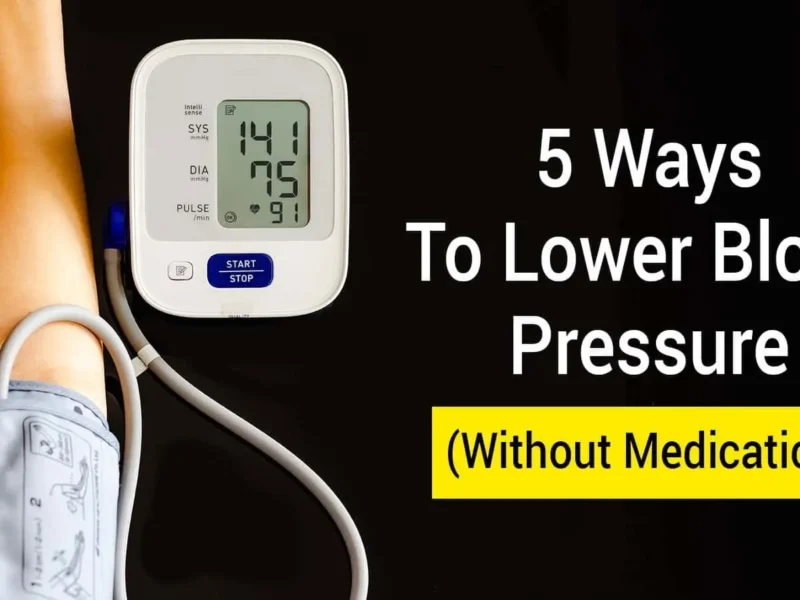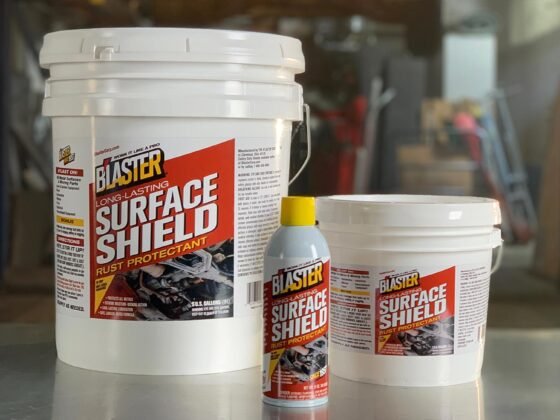Let’s be honest: the idea of taking pills every day to manage blood pressure can feel a bit overwhelming. If you’ve been told your numbers are creeping up, or you’ve already been diagnosed with hypertension, you might be wondering if there’s a more natural way to bring things down.
Good news? There is.
While medication is sometimes necessary, there are natural ways to lower blood pressure that can make a huge difference—without popping a single pill.
Let’s dive into 9 natural methods that are Actually backed by science and pretty easy to start.
1. Cut Down on Salt (But Don’t Panic)
Sodium is everywhere—especially in processed and packaged foods. Eating too much salt can make your body retain water, which increases blood pressure.
Try this instead:
- Limit takeout and frozen meals.
- Cook at home using herbs, lemon, and garlic instead of salt.
- Read food labels. Anything over 400mg of sodium per serving? Leave it on the shelf.
You don’t need to be perfect. Even a small reduction in salt can lower your blood pressure—especially if you’re sensitive to it.
2. Move That Body (No Gym Required)
Exercise doesn’t mean running marathons or joining a CrossFit cult. Something as simple as walking briskly for 30 minutes a day can lower your blood pressure.
Great options include:
- Walking or cycling around your neighborhood
- Dancing in your living room
- Swimming or water aerobics
- Gardening (yes, that counts!)
The key is consistency. Get your heart pumping a little every day, and your blood pressure will thank you.
3. Breathe In, Breathe Out
Stress is sneaky. It raises your blood pressure, tightens your muscles, and steals your peace. But learning how to manage stress is powerful—and surprisingly simple.
Stress-lowering habits:
- Deep breathing exercises (try inhaling for 4, holding for 4, exhaling for 4)
- Guided meditation or mindfulness apps
- Journaling your thoughts at night
- Spending time in nature or with pets
You don’t need hours. Just 10–15 minutes a day can make a difference.
4. Eat More Potassium (Yes, Bananas Help)
Potassium helps your body balance out the effects of sodium. It’s basically sodium’s cooler cousin.
Foods high in potassium:
- Bananas
- Sweet potatoes
- Spinach
- Avocados
- Beans
- Tomatoes
Just be careful if you have kidney issues—too much potassium can be harmful. Talk to your doctor before making major diet changes.
5. Shed a Few Pounds (No Crash Dieting!)
If you’re carrying extra weight—especially around your belly—it can raise your blood pressure. But here’s the upside: even losing just 5 to 10 pounds can help.
Easy ways to start:
- Skip sugary drinks and soda
- Use smaller plates to eat less without feeling deprived
- Don’t eat while watching TV (you’ll eat more without noticing)
- Add more fiber and protein to keep you full longer
Slow, steady weight loss is far better than any “lose 10 pounds in 3 days” gimmick.
6. Cut Back on Alcohol
This one’s tough for some of us. While the occasional glass of wine might be fine, drinking too much alcohol regularly can raise blood pressure.
How much is too much?
- For women: 1 drink a day max
- For men: up to 2 drinks a day
Try having alcohol-free days during the week or swapping that beer for a flavored sparkling water.
7. Quit Smoking (Your Heart Will Love You)
Smoking damages your blood vessels and raises blood pressure every time you light up. The good news? Your body starts healing within hours of quitting.
Tips to quit:
- Use nicotine patches or gum
- Join a support group or app
- Replace smoking with a healthy habit—like chewing gum or taking a walk
Need motivation? Picture your heart pumping more freely just days after your last cigarette.
8. Eat More Foods That Love Your Heart
What you eat matters. A diet filled with real, whole foods can work wonders for your blood pressure.
Focus on:
- Leafy greens
- Berries
- Whole grains
- Lean proteins like chicken, fish, and legumes
- Healthy fats like olive oil and nuts
Want to dive deeper? Check out our guide on Superfoods for heart health to build your grocery list the smart way.
9. Sleep Like Your Life Depends On It (Because It Does)
Lack of sleep doesn’t just make you cranky. It raises your blood pressure and increases stress hormones in your body.
Sleep better by:
- Going to bed at the same time every night
- Turning off screens at least 30 minutes before bed
- Keeping your bedroom cool and dark
- Avoiding caffeine late in the day
Aim for 7–9 hours. Your heart and brain both need the rest.
Conclusion: Take the Natural Path, One Step at a Time
You don’t need to flip your life upside down overnight. Pick one or two changes to start with—like walking every day or cutting back on salt—and build from there.
Small changes lead to big results. And the best part? You’ll not only lower your blood pressure but feel better overall—more energy, better sleep, less stress.
Always talk to your doctor before making major lifestyle changes, especially if you’re already on medication.
Your heart’s cheering for you. ❤️
FAQs
Q: Can I lower blood pressure without any medication?
A: Yes! Many people can reduce their blood pressure naturally with diet, exercise, stress management, and other lifestyle changes. However, always consult your doctor to be safe.
Q: How long does it take for lifestyle changes to lower blood pressure?
A: Some changes, like reducing salt or walking daily, can show results in just a few weeks. Others, like weight loss, may take longer—but they’re worth it.
Q: Is coffee bad for blood pressure?
A: Caffeine can cause a short-term spike, especially in people who aren’t used to it. Monitor how you feel after coffee, and consider cutting back if it affects you.
Q: Does drinking water help lower blood pressure?
A: Yes! Staying hydrated helps your heart pump more easily and keeps blood vessels healthy.
Q: Should I try supplements or herbs to lower blood pressure?
A: Some herbs like garlic, hibiscus tea, or omega-3 supplements may help, but they can interact with medications. Always check with your doctor before adding any supplements.


